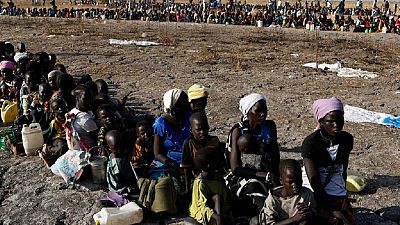South Sudan
South Sudan has been named as the world’s fastest growing refugee crisis by the United Nations refugee agency after 1.6 million people are displaced or have fled to neighbouring countries in the past eight months.
The UN High Commissioner for Refugees (UNHCR) said last Friday that the rate is alarming as majority of the refugees are fleeing to Uganda where new arrivals spiked in February from 2,000 per day to 6,000.
#UNHCR South Sudan Situation – Regional overview of population of concern as of 28 Feb. 2017 I https://t.co/8B7S977JPl
RefugeesUNinKENYA pic.twitter.com/Pt0xcfK1DF— Marco Lembo (@MarcoLembo01) March 17, 2017
“The rate of new displacement is alarming, representing an impossible burden on a region that is significantly poorer and which is fast running short of resources to cope … The situation is now critical,” spokesperson for the Office of the UN High Commissioner for Refugees (UNHCR), Babar Baloch, told journalists in Geneva.
The UN agency is still seeking funding to aid the South Sudanese refugees as only 8 per cent of the estimated $781.8 million needed has been realised.
The U.N. humanitarian chief Stephen O’Brien clearly stated after a visit that the famine in South Sudan is man-made due to the three-year civil war in the world’s newest country which is facing a worse situation.
Read here for the reality of the drought situtaion on the ground in South Sudan, Somalia, Kenya, Ethiopia and other parts of Africa affected by climate change and conflict. > Reality of the worst drought since 1945 peaking in parts of Africa https://t.co/NURh6FoQ3z
— africanews (@africanews) March 17, 2017














01:36
DRC, Liberia among five new non-permanent UN Security Council members
01:17
Israeli recognition of Somaliland is a 'calculated distraction,' Somali diplomat says
01:40
UN Finds dire conditions on first visit to Sudan’s el-Fasher since its fall
01:33
UN Security Council divided over Israel’s recognition of Somaliland
02:01
UN Chief urges world leaders to choose peace over war in new year message
01:00
Sudan: UN says RSF killed 1,000 civilians in Zamzam refugee camp in April